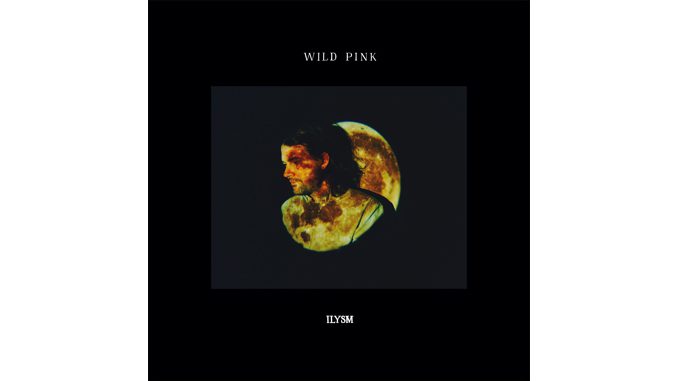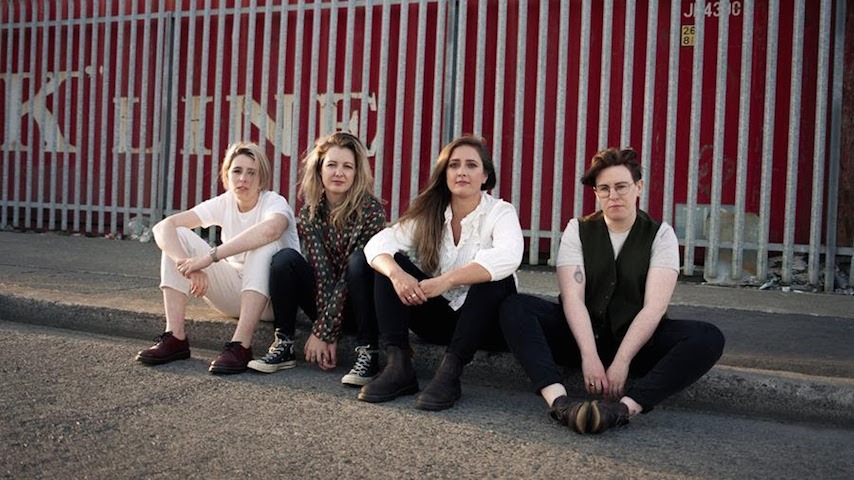There are very few bands who have had a more interesting trajectory over the past five years or so than Wild Pink, the project of songwriter John Ross. After dropping a couple of EPs throughout the mid-2010s, the band really honed in on their sound with the release of their self-titled debut, conjuring up a haze of slowcore equal parts fuzzy and dreamy. On their sophomore album, Yolk in the Fur, Wild Pink began to incorporate synthesizers and elements of heartland rock into their sound, a slight shift in direction sonically, but you can see the seeds of these new ideas first taking shape on Bridge Music, the debut from Ross’ ambient side project Eerie Gaits, which was quietly released in between the band’s first two records. Consider this the first major turning point for the band, the moment where they slowly begin to drift away from a style which many critics likened to early Death Cab for Cutie and toward atmospheric indie rock that more closely resembles bands like The War on Drugs.
However, it wasn’t until last year’s A Billion Little Lights that the band really started to swing for the fences, creating a sprawling odyssey of lush soundscapes and rich imagery which Ross had originally envisioned as a double album exploring the history of the American West before ultimately deciding to ditch the concept, although many of its themes and the sheer scope of his original vision remained intact. With the release of ILYSM, Wild Pink have tweaked their formula once again, dialing back ever so slightly on the expansive sound they built on A Billion Little Lights without sacrificing any of the sonic curiosities that made it such an engrossing listen. Over half of the tracks on ILYSM stretch past the five-minute mark, including multiple extended jams and sweeping soundscapes that serve as outros, and the album’s hour runtime feels more than earned with all of its many twists and turns.
Opener “Cahooting The Multiverse” is a dazzling patchwork of both organic and synthetic sounds melded together into an otherworldly beauty, setting the stage for most of what follows. Ross helps to create extra space on the track by allowing it to briefly pause every now and again as he sees fit. One of these pauses is stitched together to the rest of the song by arpeggiating bleeps that flicker across it like string lights strung up on a balcony—it’s a very subtle trick, but in practice, it makes the song feel larger than life. “ILYSM” is the closest Wild Pink have ever come to having a big pop moment, butit doesn’t take too long for the track to mutate into something else completely, slowly shifting gears into shimmering post-rock halfway through. By the time it’s all said and done, everything gets swallowed up and spit back out into a sea of noise as remnants of the track spill out like waves washing up on the shore. Album highlight “Sucking On The Birdshot” is most reminiscent of “Q. Degraw,” the standalone single Wild Pink dropped earlier this year. It’s an impossibly heavy onslaught of blown-out guitars dialed up to 11, and its placement on the album makes for one of the most surprising and satisfying musical moments of the year, the kind of thing you have to hear to believe.
Picking up right where A Billion Little Lights left off, ILYSM finds Ross once again staring into the cosmos and the infinite abyss, looking towards the moon as a companion and the night sky as a link to all of humanity. Early on in the writing process for ILYSM, Ross was diagnosed with cancer, and there are moments on almost every song where you can hear him grappling with this diagnosis and trying to make sense of it all. In spite of its tough subject matter, or perhaps because of it, ILYSM is a record brimming with hope and a newfound appreciation for life itself. Songs like “Hold My Hand,” a duet with Julien Baker, and the hauntingly beautiful “St. Beater Camry,” which features vocals from Samantha Crain, take a more laid-back sonic approach which, in turn, makes them all the more effective as Ross shares some of his most vulnerable lyrics to date. These tracks in particular serve as further proof that no matter how complex the band’s arrangements have grown, the humanistic qualities of their songs have always endured. On “St. Beater Camry,” Ross pleads, “So just run away / You can make it if you leave now,” his voice barely rising above a whisper. It’s moments like these where it feels like you’re listening in on a private conversation between two strangers and as a result, his lyrics land like a punch to the gut. However, it isn’t until “The Grass Widow in the Glass Window” that Ross delivers one of the record’s most devastating lines: “Now is not for the faint of heart / They’ll put you on a shelf / If you can’t just shut the fuck up and be alone with yourself.”
Another thing that sets ILYSM apart from the rest of the band’s discography is its many collaborators, featuring returning guests like Julia Steiner of Ratboys, who provides backing vocals on a couple of tracks, and Mike “Slo Mo” Brenner, whose lonesome pedal steel playing is the album’s secret weapon, plus a rotating cast of newcomers who all fit right into Ross’ singular vision. “See You Better Now” has all of the stomp and swagger of Tom Petty, plus a towering guitar solo courtesy of Dinosaur Jr. maestro J Mascis; the bouncy groove of “War On Terror” is the perfect playground for Ryley Walker‘s guitar heroics; and Yasmin Williams shows up on “The Grass Widow In The Glass Window” as the track unfolds into an off-kilter jam session. There’s a whole lot of ambition on display here, especially in the second half of the tracklist, and all of these disparate pieces somehow come together thanks to Ross’ confidence as a songwriter and arranger. Simply put, if this isn’t the sound of a band leveling up, then I’m not sure what is.
Michael Brooks is a writer and podcaster from Illinois whose work has appeared in FLOOD Magazine, The Alternative and Merry-Go-Round. You can listen to him talk about music on Endless Scroll and follow him on Twitter @nomichaelbrooks.
Revisit Wild Pink’s 2018 Daytrotter session below.




